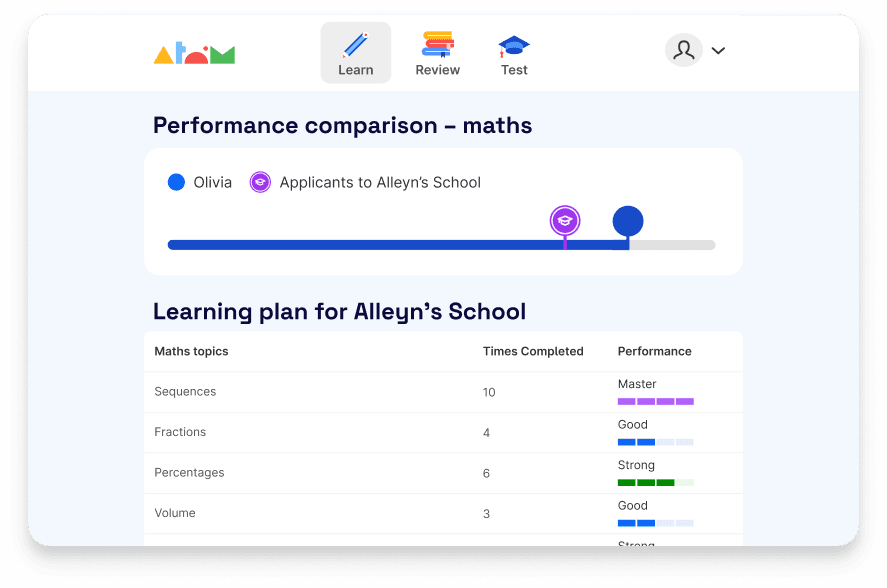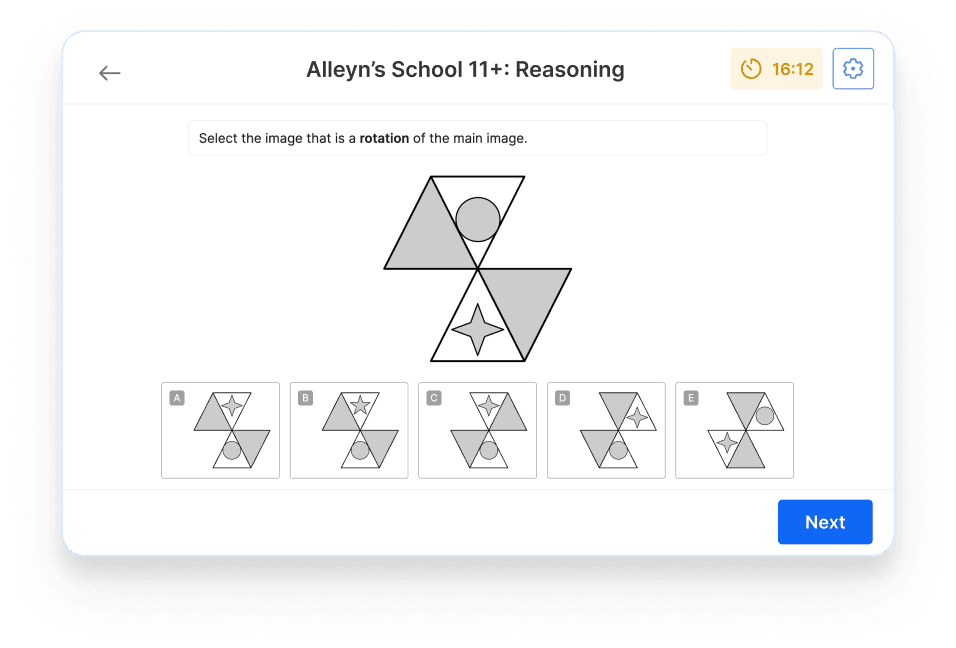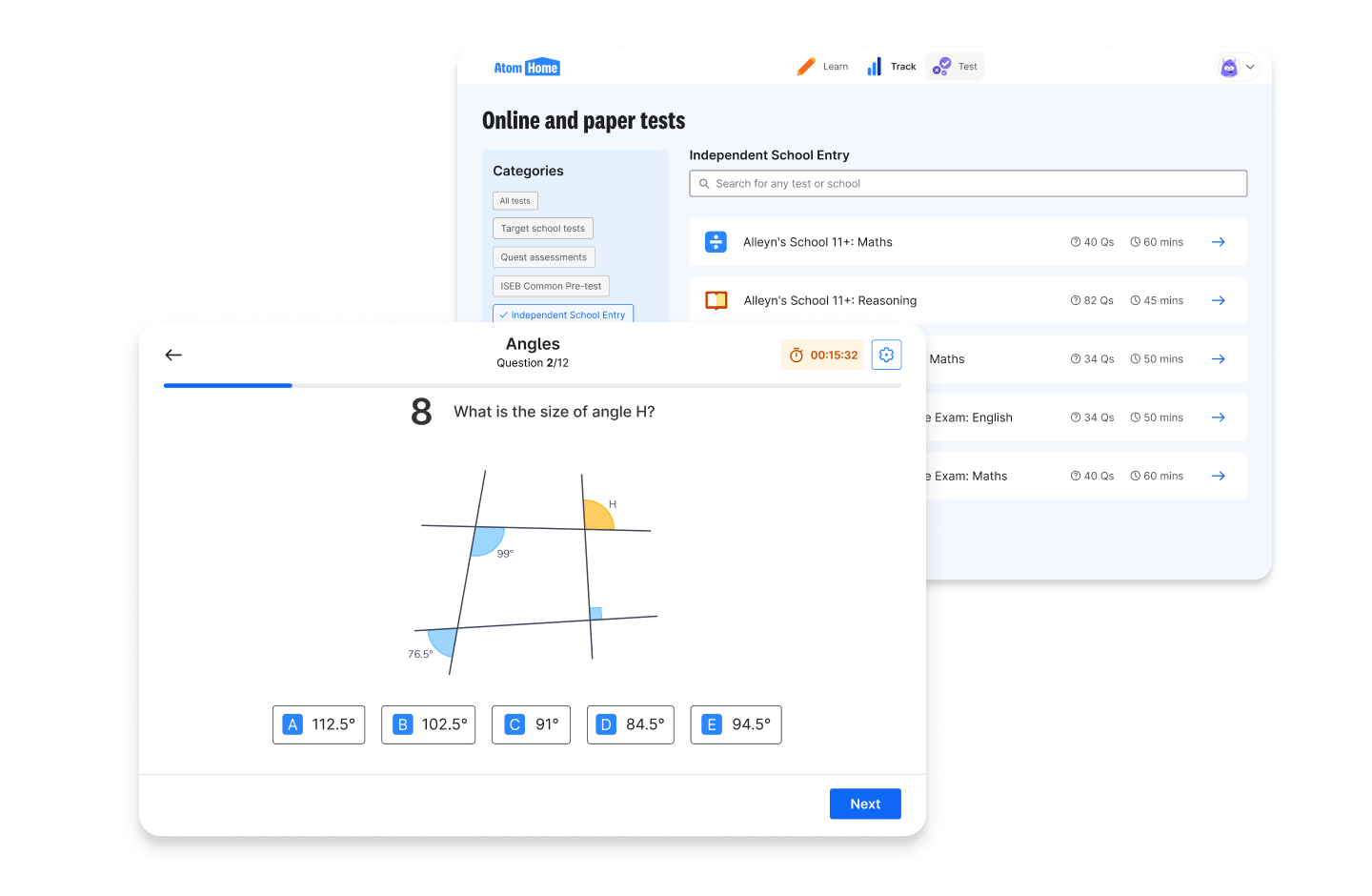Alleyn's School 11+ entry guide

Considering Alleyn's School for your child? We’ve collated everything you need to know about 11+ entry. Learn how to apply, what’s on the entrance exam, and how to help your child prepare for success.
Key information for Alleyn's School
- Address: Alleyn’s School, Townley Road, London SE22 8SU
- Age range and gender: boys and girls aged 11–18
- Type of school: independent day
- Number of students: 1,300+
- Admissions contact: [email protected]
- 11+ open days: September
- 11+ selection criteria: entrance exam, interviews and group activity
- Financial assistance: means-tested bursaries
- 11+ scholarships: academic, art, DT, drama, music and sports
About Alleyn's School
Alleyn’s School is a leading private day school in South London, founded by Edward Alleyn in 1619. The senior school educates boys and girls ages 11–18. It's consistently ranked among the top private schools in the country based on students' exam results.
Alleyn's is committed to providing a holistic education. Academic excellence is celebrated, but seen as a by-product of an exceptional education rather than the main goal. Pastoral care is strong and there is a positive and proactive approach to mental health and wellbeing. The school celebrates individuality and encourages students to embrace self-expression.
Alleyn's boasts an extensive co-curricular programme. There is a myriad of opportunities on offer, including sports, music, arts and drama, the Duke of Edinburgh Award and CCF. Weekly clubs and activities include film and photography, cookery and molecular gastronomy, school radio, and 60 weekly sports clubs.
Dates for your diary
- Registration opens: September in Year 6
- Registration closes: November in Year 6
- Entrance exam: early January in Year 6
- Interviews and group activities: late January in Year 6
- Interviews: January in Year 6
Alleyn's School 11+ entrance exam
All children who are registered for 11+ entry to Alleyn's School take an entrance exam in January in Year 6.
Alleyn's School sets its own 11+ assessment. There are three papers: English, maths and reasoning.
English
The English paper is a creative writing task which lasts 40 minutes.
Your child will be asked to write a piece of narrative or descriptive writing in response to a stimulus – such as continuing a story from a passage. It’s recommended that your child spends 10 minutes reading the passage, and 25 minutes writing their response.
Marks will be awarded for:
- Detailed comprehension
- Clarity, fluency and accuracy of writing
- Imaginative and linguistic flair
Reading a wide range of fiction is a great way to prepare for this exam.
Maths
The maths paper lasts 30 minutes. Questions are based on topics your child will have learned in Key Stage 2 maths at school – specifically number and algebra, shape, space and measures, and handling data. However, the questions might be more challenging than your child is used to. They will need to know how to apply the knowledge they have learned to solve mathematical problems.
The format of the questions is mixed. Some questions might be multiple-choice, while others require free responses.
Reasoning
The final paper tests three different types of reasoning. This paper is provided by GL Assessment. Many grammar schools use GL Assessment for their 11 plus exams.
The types of reasoning are verbal reasoning, non-verbal reasoning and spatial reasoning.
- Verbal reasoning: this involves reasoning with written information, such as letters and words. Questions look at how words are created and used, and the relationship between words.
- Non-verbal reasoning tests reasoning with abstract figures, such as shapes and pictures. Your child will be assessed on their ability to find relationships between shapes and sequences of shapes. They might need to spot common features from one set of shapes and apply them to a new shape.
- Spatial reasoning is similar to non-verbal reasoning, but this specifically looks at how well your child can manipulate shapes in their mind.
All of the questions in the reasoning paper are multiple-choice. Your child will have pre-printed answer sheets to mark.
Children who reach an acceptable standard in the entrance exam are shortlisted for the Alleyn’s interview day. This consists of small group activities and a one-to-one interview. Your child will be asked about their interests in school and in their day-to-day life. Learn top tips and get a downloadable resource to help your child prepare in our guide to independent school interviews.
Atom’s top tips for applying to Alleyn's School
Alleyn's School is a very popular selective school in south London, so competition for places can be high. Here are our top tips to help your child prepare for the selection process.
Bitesize learning
It’s important to build a good knowledge base before school entrance exams. Your child should have a good understanding of the content they’ve been taught at school before testing their knowledge with practice tests.
Using a ‘little and often’ approach when learning is key – our brains encode new information more effectively when dealing with smaller ‘chunks’ of information. For children aged 10–11, child psychologists recommend regular study sessions of 20–30 minutes.
With Atom Home, you don’t need to worry about creating a study schedule. When you enter your target schools, you’ll get a bespoke learning plan tailored to your schools’ entrance exams. Know exactly what your child needs to do each week to confidently pass.

Read widely
Entrance exams test children’s ability to analyse and interpret written information. Regular reading is a great way to help your child build these skills.
Encourage them to read books from different genres and by a diverse range of authors. Increasing the variety of your child’s reading will help them understand different styles, tones and purposes. Meanwhile, reading a little every day will help widen their vocabulary, sharpen their analytical thinking, and enhance their imagination.
Looking for reading inspiration? Check out our Key Stage 2 reading list.
Hone curiosity
Selective schools are often looking for children who are interested in learning. You can help by supporting your child’s broader learning, their intellectual curiosity, and their passion for developing an understanding of the world.
Talk to your child about the world we live in and inspire an interest in current affairs with age-appropriate journalism. It’s also a good idea to make sure they’re benefitting from a rich variety of experiences, such as visiting libraries, museums and galleries.
Refine exam technique
When your child feels confident with their knowledge of the exam topics, they’ll be ready to put their knowledge to the test.
Mock tests can help your child develop problem-solving skills and refine exam technique. They’re also a great way to consolidate learning, while highlighting any knowledge gaps they might want to tackle before exam day.
When you set Alleyn's School as a target school on Atom Home, your child will get tailored mock tests for Alleyn's School as part of their learning plan. Know what to expect on exam day.

Celebrate progress
Setting regular, achievable goals and celebrating your child’s progress – no matter how big or small – will help keep their motivation high.
Make sure to encourage a growth mindset. This means celebrating effort, as well as achievement! When your child makes mistakes or struggles to understand a particular topic, help them understand that they’ll improve through practice. Regular praise will help your child improve their resilience when tackling new and challenging topics.
Take control of your child’s independent school prep.

Worried about keeping pace with the competition? Independent school exams can feel unpredictable, but your child’s preparation doesn’t have to be. Atom shows you exactly what to practise and how they’re performing, so you can stay ahead throughout the admissions process.
- Follow personalised weekly exam plans that show them what to learn next.
- Practise with mock tests that replicate their exam and generate new questions every time, so they build real exam skills.
- Track progress and see how they compare to others preparing for the same schools.
Start your free trial and help your child get ready for senior school entry.
